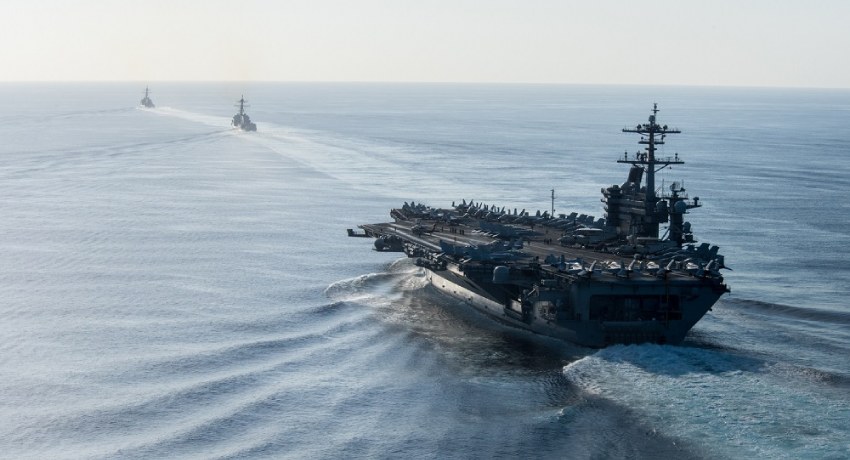Amid rising tensions, a Chinese Rear Admiral has suggested sinking two US Navy aircraft carriers to test America’s commitment to security and stability in the Indo-Pacific, but the US is not taking provocations lying down.
To continue reading the rest of this article, please log in.
Create free account to get unlimited news articles and more!
In a speech delivered in Shenzhen, military academic Rear Admiral Luo Yan has claimed that the US's commitment to maintaining the regional economic, political and strategic order of Indo-Pacific Asia could be undermined by targeting the five cornerstones of America's dominance.
According to Rear Admiral Yan, the "five cornerstones" and key "weaknesses" China should target to either pre-emptively prevent US intervention in the region or in response to continued US assertiveness towards China and its interests, include:
- The US military, particularly Navy and Air Force assets in the region;
- The US dollar and the broader US economy;
- US research and development talent;
- The US political system; and
- Presence of near-peer to peer adversaries (i.e. China and Russia).
As a military academic and strategic thinker, Rear Admiral Yan focuses his commentary on the key pillars of US power projection and strategic force multipliers in Indo-Pacific Asia, namely the pinnacle of American military power, the aircraft carrier and their associated strike groups.
"We now have the DF-21D and DF-26 missiles. These are aircraft carrier killers. We attack and sink one of their aircraft carriers. Let them suffer 5,000 casualties. Attack and sink two carriers, casualties 10,000. Let's see if the US is afraid or not?" Rear Admiral Yan said.
The US Navy currently has one aircraft carrier operating in the Pacific, with the USS Ronald Reagan the nation's only 'forward deployed' aircraft carrier in the region, based out of Yokosuka Navy Base in Japan, with additional super carriers based along the US Pacific coast.
These comments follow increased economic animosity between the world's two leading great powers and growing regional concerns about increased Chinese militarisation of the South China Sea and the broader region.
In contrast to these overt actions, China has spent the better part of the last 20 years reassuring the Indo-Pacific region that its ascendancy would be peaceful. Buoyed by meteoric economic growth and an unrivalled cheque book, the ancient nation has decisively flexed its soft-power muscles through initiatives like the One-Belt, One-Road policy and the Asian Infrastructure Bank.
These actions have raised alarm bells for many regional nations, including Japan, South Korea, Taiwan and Australia, each a firm US ally, invested in the continuing stability and prosperity of the post-Second World War regional order.
The comments made by Rear Admiral Yan are the second time in as many months that a Chinese military official has declared that China should actively pursue military solutions should the US and its regional allies intervene to counter China's strategy in Indo-Pacific Asia.
Recently, a Chinese colonel also issued a stern warning to the US and its regional allies operating in the South China Sea and more broadly the western Pacific ocean where they may challenge China's increased territorial and economic ambitions throughout the region.
Dr Malcolm Davis of the Australian Strategic Policy Institute told Defence Connect, "2018 has been an interesting year in the South China Sea. It started fairly early on with the basing of anti-ship cruise missiles (ASCM) on reclaimed islands in the SCS, the basing of the upgraded, H-6K nuclear capable bomber on Woody Island and more recently the USS Decatur (DDG-73) incident really reinforces that China is not backing down from its territorial ambitions."
For the US, China's increased assertiveness and willingness to engage in aggressive actions towards regional partners and the US itself is not going unnoticed, with the Chief of US Naval Operations, Admiral John Richardson, saying, "We [the US and China] will meet meet each other more and more on the high seas."
The US response to China goes beyond the strategic brinkmanship playing out in the western Pacific, with President Donald Trump signing the Asia Reassurance Initiative Act 2018, which authorises US$1.5 billion to counter China's growing strategic influence, establishing a multi-pronged strategy to advance US security and economic interests throughout Indo-Pacific Asia.

 Login
Login







